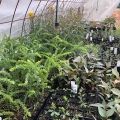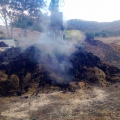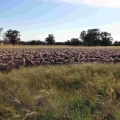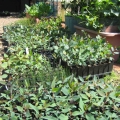Growing Future Forests!
Published 16th August 2024. Written by Maddison O’Brien
Quietly working away, the Watershed Landcare Nursery volunteers have grown tens of thousands of plants over the past few years for the community. Since its inception, the nursery has blossomed from a humble home-based initiative into a bustling enterprise driven by dedicated and passionate volunteers. Led by Christine McRae and Wendy Arnott, the nursery was founded with a mission to propagate locally native plants that are adapted to the extremes of our region. Having achieved this with resounding success, it’s no surprise that the nursery has continued to grow, recently undergoing significant upgrades to enhance its capacity and sustainability.
Recent improvements include the addition of shade houses, workbenches, additional water tanks, and efficient irrigation systems—all aimed at nurturing a diverse array of native species while saving time for volunteers. These enhancements not only bolster the nursery’s production capabilities but also ensure that each plant is cultivated with care, producing top-quality tube stock for the community. This level of care and attention to detail is what sets the nursery apart, allowing it to flourish and serve the local area with distinction.
The nursery plays a pivotal role in supporting a variety of stakeholders—from landholders reclaiming their properties through ambitious revegetation goals, to local residents enhancing their gardens with indigenous flora, to larger organisations like the Mid-Western Regional Council undertaking public planting projects. Every plant sold by Watershed Landcare is grown on-site, and seeds are sourced locally wherever possible, ensuring that the plants are well-adapted to thrive in our unique environment.
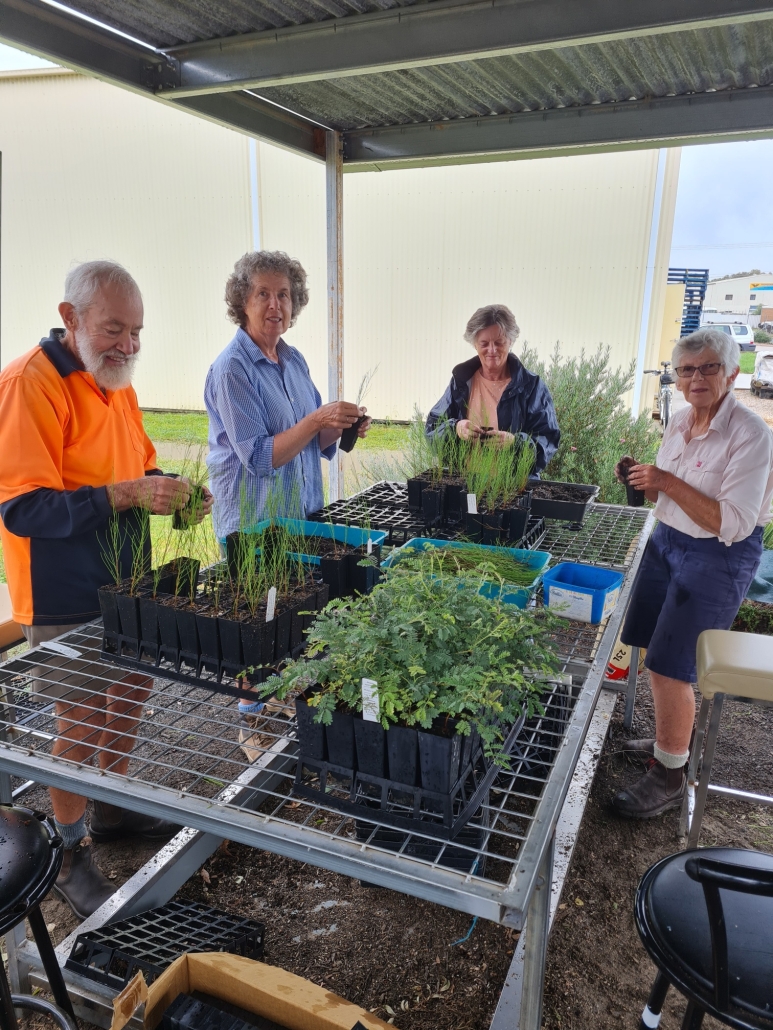
“As we approach Spring, we invite the community to place a grow order for native plants,” encourages Maddison O’Brien, local Landcare coordinator. “By ordering now, you not only secure plants nurtured specifically for your needs, but also contribute directly to funding Landcare projects, nurturing the environment, and supporting the community.” Grow orders placed in Spring will be sown and nurtured over the Summer, ensuring they are ready for Autumn 2025 planting. Grow orders will close at the end of September 2024
Planting native species offers myriad benefits, from fostering biodiversity and providing vital habitat for local wildlife, to conserving water and reducing maintenance needs. Whether you’re restoring a natural habitat or beautifying your backyard, native plants are an ideal choice to improve the health and resilience of our local ecosystem.
For those eager to support local biodiversity and sustainable landscaping, placing an order is simple. Visit watershedlandcare.com.au/nursery to browse available species and follow the instructions to place your grow order today. The community is reminded that the Watershed Landcare nursery is not a retail nursery, and access is prohibited without an appointment. For personalised guidance on plant selection or planting tips, our dedicated volunteers and Maddison O’Brien are here to assist you every step of the way.



